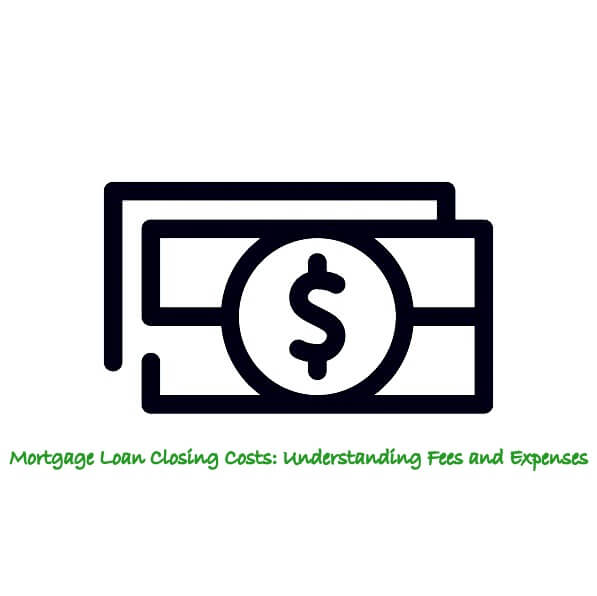Mortgage Loan Closing Costs: Understanding Fees and Expenses :Mortgage loan closing costs encompass a variety of fees and expenses that borrowers need to be aware of when finalizing their home purchase. This article provides an overview of the different types of closing costs, helping borrowers understand the financial aspects involved in the closing process.
Mortgage Loan Closing Costs: Understanding Fees and Expenses

Mortgage Loan Closing Costs: Understanding Fees and Expenses
Understanding these costs can help you plan your finances accordingly and avoid any surprises. In this article, we will explore common types of closing costs and provide insights into the fees and expenses you may encounter.
Types of Closing Costs:
- Loan Origination Fees: These fees cover the lender’s administrative costs for processing the loan. It typically includes application fees, underwriting fees, and loan processing fees.
- Appraisal Fees: An appraisal is conducted to determine the value of the property. The borrower usually pays for this evaluation, which ensures that the property’s price aligns with the loan amount.
- Title Insurance: Lenders often require title insurance to protect against any potential claims or disputes regarding ownership rights and liens on the property.
- Attorney or Escrow Fees: Depending on the state and the complexity of the transaction, an attorney or an escrow company may be involved in handling the legal aspects of the closing process.
- Survey Fees: A property survey may be necessary to verify the property’s boundaries and ensure there are no encroachments or easement issues.
- Home Inspection Fees: Although not always required by lenders, a home inspection provides a comprehensive assessment of the property’s condition and may help identify any potential issues.
- Recording Fees: These fees cover the cost of recording the mortgage and deed with the appropriate government entities.
- Prepaid Expenses: This includes upfront payments for items such as property taxes, homeowner’s insurance, and prepaid interest.
Understanding the Expenses:
It’s crucial to be aware that closing costs can vary based on factors such as the loan amount, property value, and location. Generally, closing costs can range from 2% to 5% of the total loan amount. It’s recommended to obtain a Loan Estimate (LE) from your lender, which provides an itemized breakdown of estimated closing costs, allowing you to have a clearer understanding of what to expect.
Negotiating Closing Costs:
While certain closing costs are non-negotiable, such as government recording fees, other fees may be subject to negotiation. Some lenders may be willing to reduce or waive certain fees, especially if you have a strong credit profile or are working with preferred partners like real estate agents or attorneys. It’s important to communicate with your lender and explore any potential opportunities to minimize closing costs.
Closing costs are a necessary part of the home buying process, but being informed can help you prepare financially. By understanding the types of closing costs involved and having a clear estimate upfront, you can budget appropriately and avoid any last-minute financial surprises. Remember to review all documentation carefully and ask questions if anything is unclear. Working with a knowledgeable mortgage professional can also provide valuable guidance and ensure a smooth closing process.
